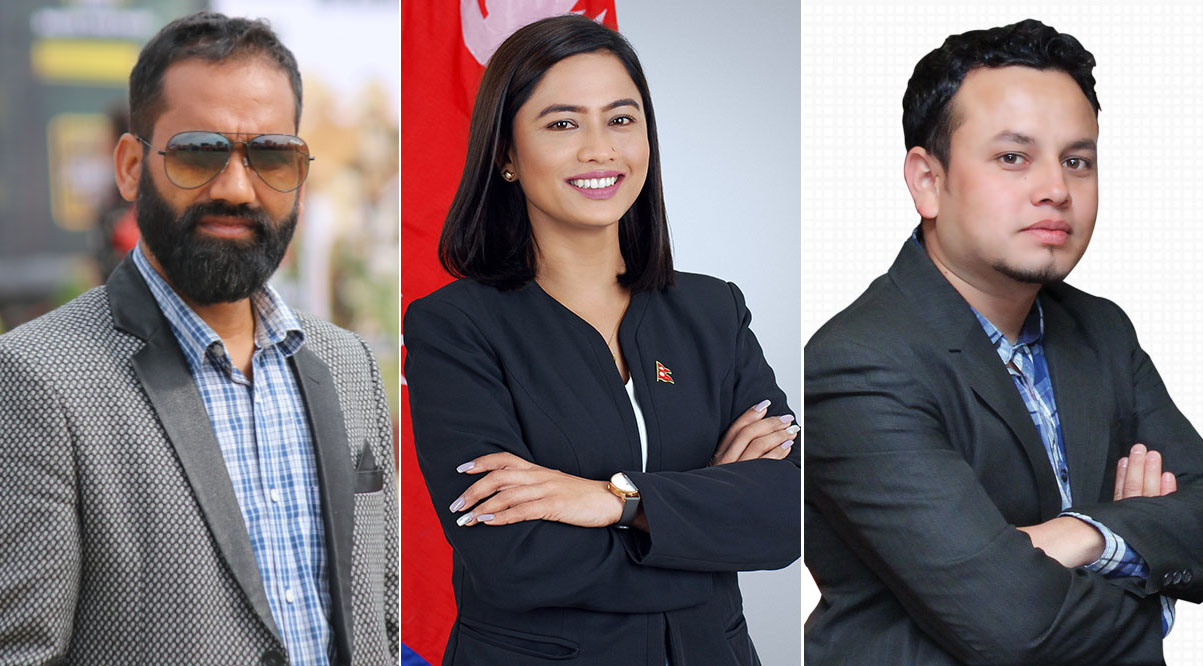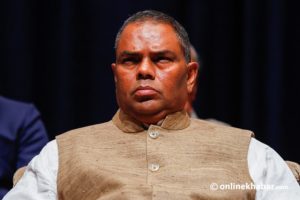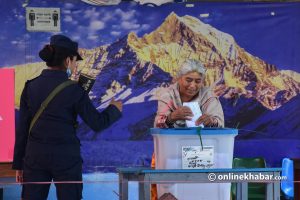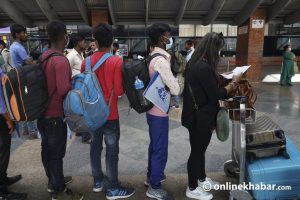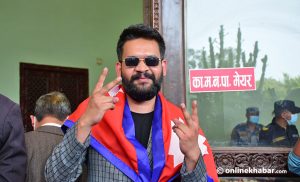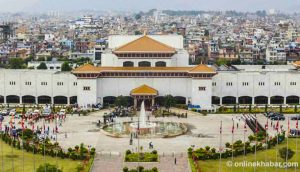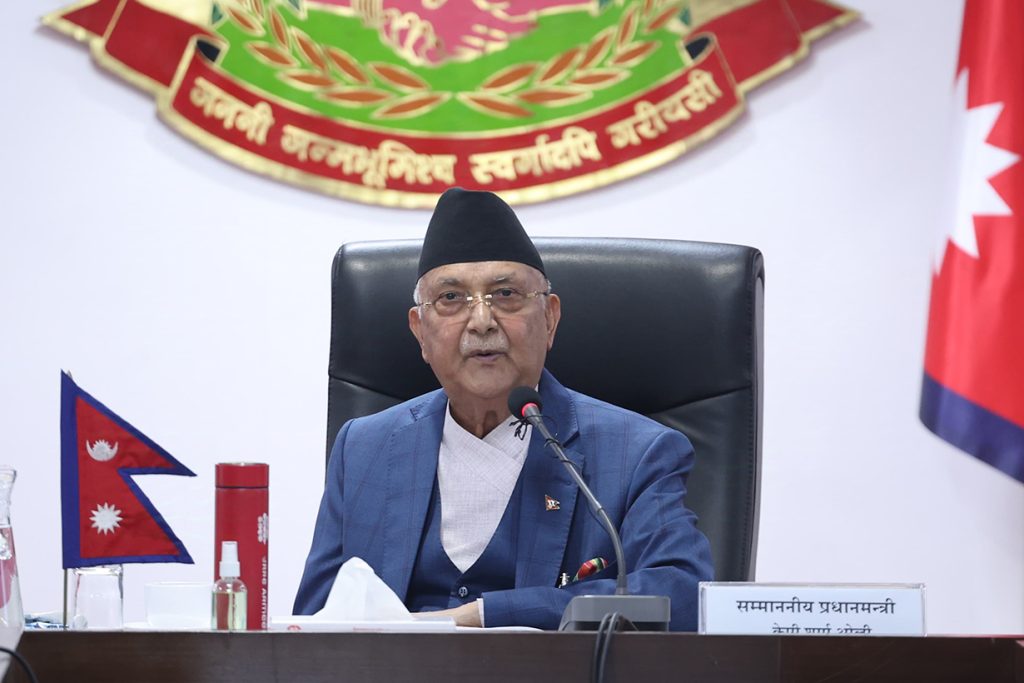“Politics is a bad game.”
“Elections are pointless.”
In recent decades, such ideas, especially among the youth, have been growing stronger in Nepal. But, some individuals, among the young people, think otherwise. A few of them feel now is the time to change the way of politics as Nepal is holding the next local elections in May.
Accordingly, across Nepal, many independent candidates have stood up to file their candidacy for the upcoming elections.
These candidates claim they have a special focus on the mayoral positions in their respective municipalities to initiate changes that have been long due even after the federal system was introduced. Though history has not been in their favour, they are still hopeful that youth like them who are frustrated by the same old, ineffective system will join their hands together and bring about the change.
Here are three stories in which the candidates hope to spark new changes.
The incentive of independence

If you look at the people who have filed their candidacy in different positions for the local elections, many have aimed for the mayoral position.
Their common objective? To be in the position of change and focus on the local needs and resources.
“Political parties have been working in their vested interest for so long. But, local units are not the place for party-favoured politics. It needs to be about the people and function independently,” Sumit Kharel, who aspires to become the mayor of Budhanilakantha municipality in Kathmandu, says, “A mayor is in the centre of all the local level development or lack thereof, we have all seen the proof in these last five years. So, filing the candidacy for the mayor’s position is the most appropriate chance to give back to the community.”
Neetu Khadka, the mayoral candidate for Baglung municipality in Baglung for the next local elections, also shares Kharel’s views and adds, “Political parties work with their party cadres and they promise a lot to the locals to win the elections. After they win, they feel obligated to return the favour giving rise to nepotism and favouritism, which have hindered local development. Hence, the mayor belonging to political parties are busy in doing meetings, programmes and making promises from their cabins rather than actually working.”
Kharel, who worked as an assistant for the outgoing Budhanilakantha mayor for four years, attests, “There are so many ideas that were bounced through when I worked for him, yet only rarely did they take shape. So, to free oneself from the obligations [towards the parties], the mayor has to be an independent candidate.”
Khadka adds, “The party ticket itself has been like tender bidding or a bargaining chip. For an individual to get to file the mayor’s position takes years and a lot of money. Individual candidacy is the way to break through the painstaking process.”
The independent candidates say their focus is on the local elections also because shifting the national political party system will be difficult and do not want to undertake the role now.
Ganes Paudel, the mayoral candidate for the Pokhara metropolitan city in Kaski, also agrees with the duo. “Youth today want better governance that is free from vested interests, syndicates, irregularities, violence and protests of party politics that have chipped away the system meant to build them up. The local elections are the time for a change and a bit of honesty and transparency can go a long way.”
Hope against hope

The independent candidates have their hopes, but history has not been kind to them. The competition during local elections is tough given that the political parties have had a stronghold among the voters since the start.
But, the independent candidates say they are aware of this, yet add their fight is against that very idea.
“I am hopeful that young voters will cast their votes for the change,” shares Kharel. “We recently did a survey in Budhanilakantha and the young and new voters share our frustrations from the weak governance and lack of focus on development among leaders. Apart from that, I am also hopeful about the women voters and swing voters.”
To gain those votes during the local elections, the new batch of possible leaders are also opting for new ways of marketing. They say they focus on making their faces, names and electoral symbols known first.
“Recently, the political parties and, in extension, the government have lost people’s trust. But, people should never lose trust in the government. The country is also not ready for the right to reject or none of the above options either as we need a separate system for that to work. The immediate escape from the frustrations and disappointment seem to be voting for independent candidates during the local elections,” adds Kharel.
Paudel’s target is also the same. He is more hopeful now that political literacy has increased among voters. “Though we are far from enough, in the recent years, people have become aware of the importance of their votes, and do that without the influence of their closed ones.”
Khadka, on the other hand, is hopeful yet worried. “My target is also definitely the youth. But, in Baglung, a lot of the young population are outside, for education or employment. Hence, the major group is missing. If the Nepali youth abroad are allowed to vote in this year’s local elections, I certainly see more chances of winning and making a difference.”
A fight for faith

Hopes are good for the future, but they say, they are also okay with the loss. “Even with the loss, we will never stop working on the agenda,” says Khadka.
“What we are standing up for is local development, as intended in federalism system. It is not a fight against the political parties. So, we will continue to push our agenda regardless of who wins during the local elections,” she assures.
Paudel also shares, “Though we are all filing our candidacy separately, many of us are a part of the Ateri campaign. Youth have always been called stubborn for being a rebel or not following the old ways. But during the local elections this time, we want to change the notion and continue to rebel for the good. We believe in our campaign and we will continue to work on the agenda of our respective municipalities, irrespective of results.”
Their common vision for this year’s local elections includes policies that strengthen the young and women population. For the common local benefits, the independent candidates also aim to set up ward-level one-stop primary health clinics as well as focus on projects that enhance physical and mental well-being. Further, they say the focus will be on infrastructures, education and recreational activities.
Irrespective of win or loss, Kharel also says the independent candidates will need the support system across the nation. He is hopeful this will also herald the new era when people relearn their dependency on government and focus on sustainability.



